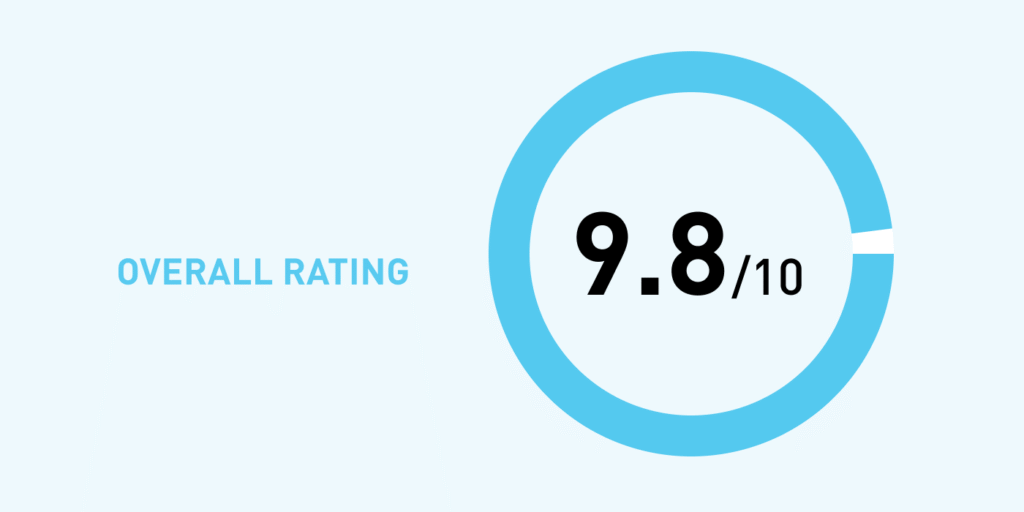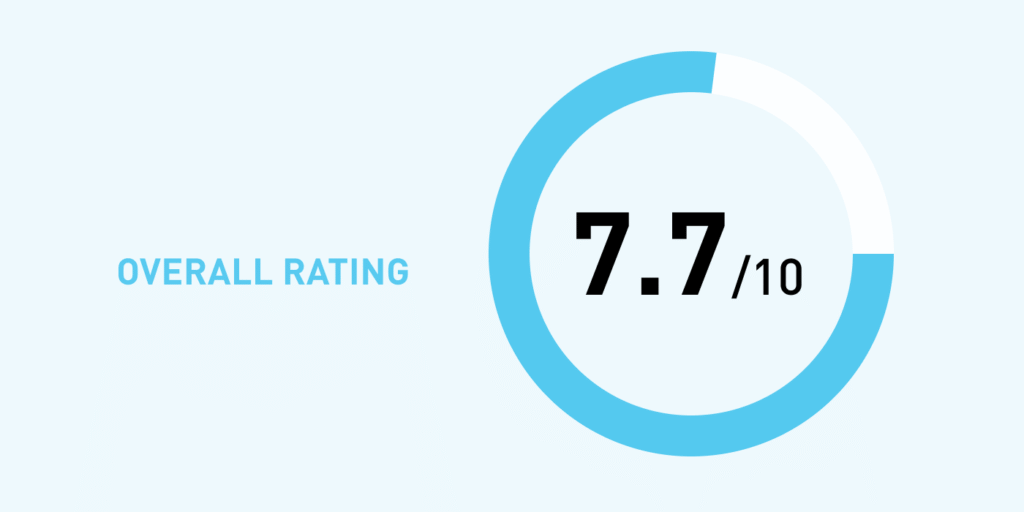Advertisement

Omega-3 fatty acids are essential for maintaining optimal health and play a central role in our well-being. These essential fatty acids, also known as n-3 fatty acids, are found in abundance in cold-water fish, algae, krill, and some vegetable sources such as flaxseed and chia seed.
As essential nutrients, omega-3 fatty acids must be supplied through the diet because the body does not produce them itself. Their importance cannot be overstated, as they perform a number of important functions in the body that are necessary for optimal physical and mental well-being.
Not all omega-3 fatty acids are the same
It’s important to note that not all omega-3 fatty acids are the same. There are three main types of omega-3 fatty acids: EPA (eicosapentaenoic acid), DHA (docosahexaenoic acid), and ALA (alpha-linolenic acid). EPA and DHA are particularly found in fish and other seafood, while ALA is derived from plant sources.
All three types of omega-3 fatty acids have health benefits, but EPA and DHA are considered the most important for human health. The body can convert certain amounts of ALA into DHA or EPA.
What do omega-3 fatty acids do?

An adequate intake of omega-3 fatty acids is particularly beneficial for the heart and circulatory system. These fatty acids play an important role in regulating blood pressure and supporting healthy cholesterol levels.
Alpha-linolenic acid, one of the varieties of omega-3 fatty acids, also helps maintain cell health by ensuring strong and flexible cell membranes. This flexibility is essential for fast and efficient information transfer and efficient metabolism.
According to the European Food Safety Authority (EFSA), scientific studies have shown that:
- ALA contributes to the maintenance of normal blood cholesterol levels. A positive effect is seen with a daily intake of 2 g of ALA.
- DHA contributes to the maintenance of normal brain function. The beneficial effect is achieved with a daily intake of 250 mg DHA.
- DHA contributes to the maintenance of normal vision. The positive effect is achieved with a daily intake of 250 mg DHA.
- EPA and DHA contribute to normal heart function. The beneficial effect is achieved with a daily intake of 250 mg of EPA and DHA.
What is the difference between omega 3, 6 and 9?

The most significant difference between omega fatty acids is that both omega-3 and omega-6 fatty acids cannot be produced by the body itself and therefore must be supplied through diet. Omega-9 fatty acids, on the other hand, can be produced by the body itself and can even convert omega-3s into omega-9s. Therefore, omega-9 supplements may seem unnecessary.
When it comes to omega-3 and omega-6 fatty acids, there is usually an imbalance in the so-called “Western” diet. This diet often contains high amounts of omega-6 fatty acids from processed foods and vegetable oils, but lacks foods rich in omega-3 fatty acids, such as fatty fish.
One important thing to note when supplementing with omega-3 or omega-6 fatty acids is that the positive health effects depend on the balance of the two. Balance is crucial because these fatty acids have different and sometimes conflicting effects on the body.
The optimal ratio of omega-3 to omega-6 fatty acids is considered to be between 1:1 and 4:1. Unfortunately, many Western diets have a ratio of up to 1:20 or more, which can have serious negative consequences for health. Therefore, increasing the intake of omega-3 fatty acids and reducing the intake of omega-6 fatty acids is recommended to achieve a healthier balance.
Don’t believe these myths about omega-3 fatty acids
It’s important to dispel myths about omega-3 fatty acids that aren’t based on facts. Misinformation about these essential nutrients and omega-3 supplements is unfortunately common. That’s why it’s so important to distinguish between facts and myths. Below, we’ve dismissed some common, but definitely false rumors about omega-3 for you.
Myth 1: It’s easy to get enough omega-3 through food
In fact, it’s not that easy to get enough omega-3 fatty acids through diet alone. According to the European Food Safety Authority (EFSA), a daily intake of 250 mg of EPA and DHA is recommended for adults. Studies conducted in various European countries have shown that the majority of the population on average only gets about half of the recommended amount through their diet.
A German study, published in the British Journal of Nutrition in 2012, found that the average intake of EPA and DHA was about 120 mg per day for healthy adults. A French study, also published in the same journal in 2011, found an average intake of about 130 mg per day for the same population group. Both numbers are well below EFSA’s recommendations of 250-300 mg of combined EPA and DHA per day.
Myth 2: Omega-3 supplements are only good for heart health
Omega-3 fatty acids are widely recognized for their positive effects on heart health, but their benefits extend far beyond cardiovascular support. These essential fats play a critical role in brain function and development, with studies showing that they may help improve memory, cognitive performance, and even reduce the risk of neurodegenerative diseases like Alzheimer’s. Omega-3 has also been linked to better mental health outcomes, including alleviating symptoms of depression and anxiety by enhancing neurotransmitter function and reducing inflammation in the brain.
Myth 3: Eating fish guarantees you’ll get enough omega-3s
While eating fish is often recommended as the best way to boost your omega-3 intake, simply including seafood in your diet doesn’t automatically mean you’re getting sufficient amounts of these essential fatty acids. In fact, many popular seafood choices (like shrimps), contain very low levels of omega-3 fatty acids. Even among fish known for higher omega-3 content, such as salmon, the actual amount of omega-3 can vary significantly depending on whether the fish was farm-raised or wild-caught, its diet, and even the season it was harvested.
Additionally, cooking methods greatly influence omega-3 retention: frying fish can destroy up to 85% of its beneficial omega-3 content. Therefore, regularly eating fish alone doesn’t guarantee you’ll meet your omega-3 needs.
Surprising facts about omega-3 fatty acids

Fact 1: Omega-3s play a crucial role during pregnancy
Something noteworthy is the importance of omega-3 fatty acids during pregnancy. Studies show that women who get enough omega-3 fatty acids during pregnancy are more likely to give birth to healthy babies with well-developed cognitive and visual abilities. Additionally, omega-3 supplements may help reduce the risk of preterm birth in pregnant women.
Fact 2: Be careful when using omega-3 supplements
It’s important to be aware that fish oil supplements can contain contaminants and heavy metals like mercury, PCBs, and dioxins. Unfortunately, most fish species today are affected by environmental toxins, some more than others.
To ensure a high-quality omega-3 supplement, the fish oil comes from small fish caught in remote and less polluted waters. Due to their short lifespan and natural habitat, these fish species contain minimal pollution.
The fish oil then undergoes several distillation processes to minimize the levels of contaminants and heavy metals. Considerable efforts are needed to ensure the highest possible purity and quality.
Fact 3: The fatty acids help reduce inflammation and joint pain
Omega-3 fatty acids are powerful anti-inflammatories that can help alleviate symptoms of inflammatory conditions like rheumatoid arthritis (RA). Research has shown that omega-3s reduce the production of inflammatory molecules in the body, leading to less joint pain, stiffness, and swelling.
In fact, studies indicate that people with RA who consume omega-3s regularly experience reduced disease activity and may even require less medication to manage their symptoms. These benefits extend beyond arthritis, as omega-3s have also been linked to relief from other inflammation-driven conditions, such as inflammatory bowel disease or dysmenorrhea (painful period cramps).
What to look for when choosing an omega-3 supplement
When faced with the choice of an omega-3 supplement, it’s important to consider the following factors:
- Make sure that the product contains a high percentage of EPA and DHA.
- Choose a product that has been thoroughly tested for both purity and potency to ensure that you receive a safe and reliable supplement.
- Pay attention to the dosage per capsule and per day. Some supplements may require larger amounts to meet the recommended daily intake.
- Choose a product that contains natural antioxidants such as rosemary extract and natural vitamin E to protect the sensitive fish oil from oxidation. Since omega-3 fatty acids oxidise much faster than other fats, these antioxidants help keep the fish oil fresh and stable and preserve its high quality.
- Choose brands that are transparent about the types of fish used (e.g. anchovies, sardines or mackerel), their origin and, preferably, sustainable fishing practices, as this indicates quality control and environmental responsibility.
Broken down for you: The best Omega-3 products in comparison
To make the choice easier for you, we’ve reviewed and compared today’s most popular omega-3 supplements based on specific criteria such as ingredients, ease of use, and overall customer satisfaction. This gives you a clear overview of which product best suits your needs and preferences.
1st place – Vitality Nutritionals UltraPure Omega-3

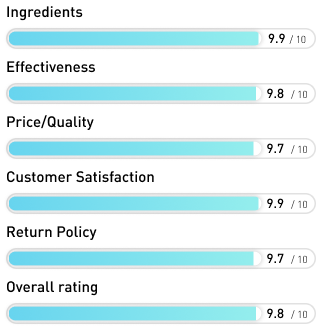
ADVANTAGES
- Very high dosage with 400 mg EPA and 300 mg DHA per capsule (800 mg EPA and 600 mg DHA daily)
- Ultra-pure through triple molecular distillation process
- Exclusively uses high-quality wild fish oil from small cold-water fish
- Natural triglyceride form for optimal bioavailability
- Contains rosemary extract and vitamin E as natural antioxidants
- Pleasant lemon flavor prevents unpleasant aftertaste
- No unwanted burping effect
- Rigorously tested for quality and purity
- Manufactured under strict European standards
DISADVANTAGES
- Often sold out due to high demand
CONCLUSION
UltraPure Omega 3 stands out as the clear winner in our comparison, offering an exceptional balance of purity, potency, and value. With its industry-leading 800 mg EPA and 600 mg DHA daily dosage in the highly bioavailable natural triglyceride form, it far exceeds the recommended daily intake for optimal health benefits. The triple molecular distillation process ensures remarkable purity, eliminating environmental contaminants commonly found in fish oil. The addition of natural antioxidants solves the typical freshness issues plaguing many fish oil supplements. While it commands a premium price point, the cost per effective dose is actually the most economical in our comparison. Its occasional availability issues are testament to its popularity and effectiveness.
2nd place – Sensilab Essentials Omega-3

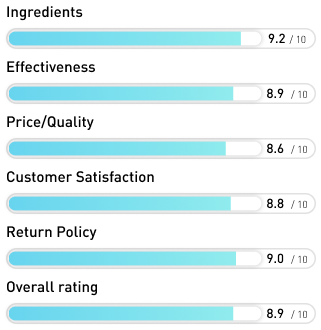
ADVANTAGES
- High concentration with 500 mg EPA and 250 mg DHA per capsule (750 mg total omega-3)
- Impressive 75% omega-3 concentration from 1000 mg fish oil base
- EU-based pharmaceutical-grade
- GMP and HACCP certified production facilities
- Double-testing protocol for raw materials and finished products
- Free from common allergens and unnecessary fillers
- 10% discount available with subscription option
DISADVANTAGES
- No rosemary extract for enhanced antioxidant protection
- Only 30 capsules per package requiring frequent reordering
CONCLUSION
Sensilab Essentials Omega-3 1000 secures second place with its impressive 750 mg omega-3 content per capsule, delivering exceptional potency that surpasses many competitors. The 2:1 EPA to DHA ratio particularly benefits cardiovascular health and inflammation reduction, while EU pharmaceutical-grade manufacturing ensures consistent quality. However, the absence of rosemary extract means it lacks the antioxidant protection found in our top choice, and the small package size may be inconvenient. Despite these drawbacks, it remains an excellent alternative for those seeking high concentration in fewer capsules.
3rd place – Vitamaze Omega-3

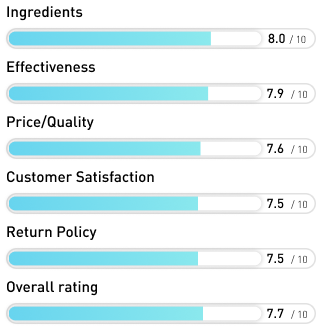
ADVANTAGES
- Contains 400 mg EPA and 300 mg DHA per capsule (700 mg total)
- German manufacturing with strict quality standards
- Registered with German Federal Office of Consumer Protection
- Friend of the Sea certified for sustainable fishing
- 90 capsules per bottle provides 3-month supply
- Uses patented purification process exceeding EU standards
DISADVANTAGES
- Lacks antioxidants
- No flavor enhancement to mask fish taste
CONCLUSION
Vitamaze Omega-3 offers a balanced EPA/DHA profile that matches premium benchmarks at 700 mg total omega-3s per capsule. German manufacturing excellence and sustainable sourcing credentials add value, while the 90-capsule bottle provides convenient long-term supply. It falls short of higher-ranked options due to the absence of comprehensive antioxidant protection and flavor enhancement, but for those prioritizing German quality standards and sustainable sourcing, it remains a solid choice.
4th place – MyProtein Unflavoured Omega-3

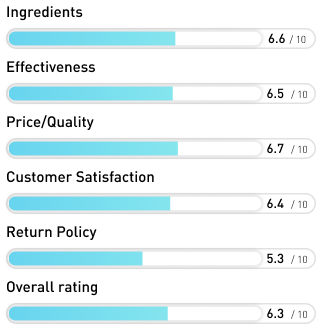
ADVANTAGES
- Contains mixed tocopherols for oxidative stability
- UK GMP-certified manufacturing facilities
- Minimal reports of fishy taste or burping
- 250 capsules per bottle provides extended supply
- Available through multiple retail channels
DISADVANTAGES
- Very low concentration with only 300 mg omega-3 per capsule
- Contains soybean oil
- No specification of molecular form (likely cheaper ethyl esters)
- Lacks sustainability certifications or fish source transparency
CONCLUSION
MyProtein Unflavoured Omega-3 takes fourth place, serving budget-conscious consumers who don’t mind taking multiple capsules daily. With only 300 mg omega-3s per capsule, achieving therapeutic doses requires significantly higher pill burden compared to our top choices. The inclusion of soybean oil and lack of transparency about molecular form or fish sources raises quality concerns. While the price point appears attractive, the need for multiple daily capsules diminishes its value proposition.


